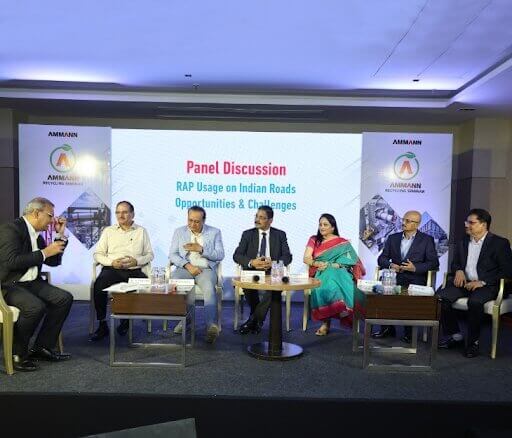
Ammann India convened industry professionals, technical specialists and strategic partners in Mumbai for its Asphalt Recycling Seminar. The gathering underscored the growing imperative for circular construction practices as India accelerates toward greener infrastructure.
Against the backdrop of nationwide efforts to reduce carbon emissions and conserve natural resources, the seminar offered a comprehensive exploration of recycled asphalt pavement (RAP) technologies tailored to Indian conditions. Attendees benefited from a blend of keynote presentations, deep‑dive technical sessions and interactive panels designed to bridge the gap between sustainability ambitions and on‑site execution.
Prominent topics included advanced material management techniques, precise temperature control protocols and the science of binder rejuvenation. Case studies presented during the seminar demonstrated that RAP‑based roadways can match—or even surpass—the durability of traditional asphalt pavements. Experts stressed the critical role of rejuvenating agents in restoring binder performance and called for standardized regulations, enhanced skill development programs and streamlined procurement processes to scale RAP adoption nationwide.
Dr Ambika Behl (F.I.E), Senior Principal Scientist at CSIR‑Central Road Research Institute, and Prof Dharamveer Singh of IIT Bombay’s Civil Engineering Department contributed detailed analyses of technical and operational hurdles. Their insights highlighted best practices for field implementation and underscored the need for ongoing research to optimize recycling workflows under diverse climatic and traffic conditions. Meanwhile, Martinho Fernandes, AVP & Product Head – Asphalt Plants at Ammann India, outlined the company’s latest plant designs that facilitate higher RAP throughput without compromising mix quality.
Addressing the gathering, Dheeraj Panda, Managing Director, Ammann India, underlined the significance of sustainable innovation in shaping the future of road infrastructure. “With both global and Indian markets shifting decisively towards sustainable construction practices, technologies like asphalt recycling have become the need of the hour. At Ammann, our 150-year legacy of innovation drives us to deliver future-forward solutions that not only meet evolving industry demands but also reduce carbon emissions and reliance on virgin resources. We’re proud to lead the way in India by enabling up to 100 per cent use of Reclaimed Asphalt Pavement (RAP), a testament to our commitment to environmental stewardship and cost-efficiency. As the government champions greener highways, our advanced recycling technologies are poised to play a pivotal role in making this vision a reality.”
Although current RAP utilization in India remains below 30 per cent, Ammann India has set an ambitious target to elevate usage levels to 60 per cent and eventually to 100 per cent. Such growth is expected to yield significant cost and time savings, aligning with national infrastructure development objectives and helping to meet stringent environmental benchmarks.
The seminar concluded with a collective call to action: industry collaboration, sustained research efforts and prompt implementation of proven recycling methods. By facilitating this exchange of knowledge and demonstrating practical pathways to higher RAP integration, Ammann India reaffirmed its position at the forefront of smart, sustainable and technologically advanced road construction in the country.

